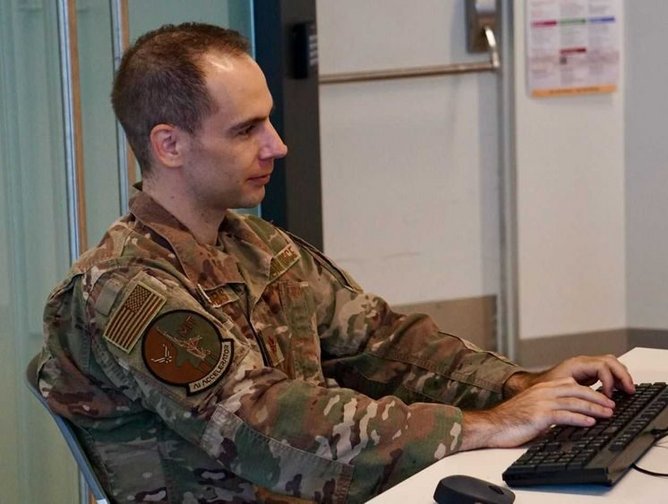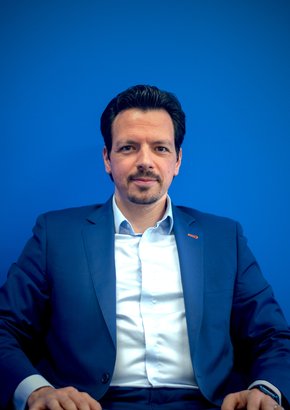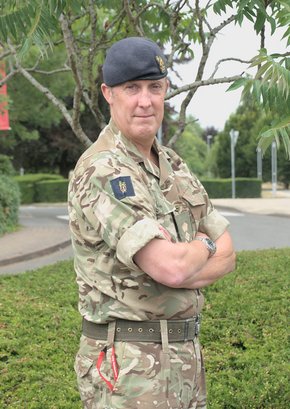
Michael Kanaan
Director of Operations
Michael Kanaan is Director of Operations, U.S. Air Force and MIT Artificial Intelligence Accelerator, having previously been at the Pentagon for four years as co-chair of AI for the Air Force.
The MIT AI Accelerator began in January of 2020. “It’s pursuant to a cooperative agreement with MIT, MIT Lincoln laboratory and the Department of the Air Force,” explains Kanaan. “Our efforts stretch across three main lines. The first is to execute a number of flagship AI projects and the related work to bring that into existence. The second is developing scalable AI education for the workforce - all demographics, all ages and all ranks. And the last is to lead the dialogue in AI, ethics and safety. It’s all about making AI real for our workforce.”
The initiatives include such things as natural language processing for communication with machine and foreign language training, swarming unmanned aerial vehicles for deployment on humanitarian aid missions and using big data to illuminate weather circumstances in areas without a ground station. The projects are linked by a shared focus, as Kanaan explains. “The most important thing is to ensure that we all have a common and shared dialogue and understanding of what AI is, what it isn't, how it works and how to walk along that journey.”
The MIT and Air Force collaboration is of a lineage with some of the most illustrious projects in the history of the United States. “There's a triangular relationship between industry, academia and government in the United States, that's very special and very storied throughout our past.” Kanaan emphasizes that it stems from a common language between government, industry and academia which must be nurtured. “We have to reinvigorate the relationship that, for instance, brought the internet into our homes. Artificial intelligence is something that's going to be viewed as equivalent to electricity in our lives, because of the way it affects us every single day. What could be more important than something like electricity being shared by the greatest minds, by those who build the best technologies and by the government as representative of its people?”
The fruits of the labor being put into these projects are not only for the Air Force’s benefit, with wider society also standing to gain. Kanaan cites humanitarian disasters, such as the wildfires and hurricanes which have had a devastating impact on the US this year, as examples of situations that could benefit from its work. “Humanitarian aid is a huge mission of the United States Air Force, as it is of the Army, the Navy, Coast Guard and so on. AI has a role to play, and that can stretch across swarming drones to using computer vision, to predicting fire lines, to detecting people in flooded areas and delivering telemedical health.”
Kanaan views the collaboration that has enabled the accelerator as key to its success. “I can’t emphasize enough how grateful we are to MIT, to academia, to industry for being a part of this conversation and to our airmen and workforce for wanting to have the dialogue. What makes us special is that, while we are certain to make mistakes along the way, we hold a dialogue afterwards. It's all about diving in.”
Read the full story: HERE

Featured Interviews
We’ve built some unique features into our insurance program specifically because we’ve listened to courier partners in every country





